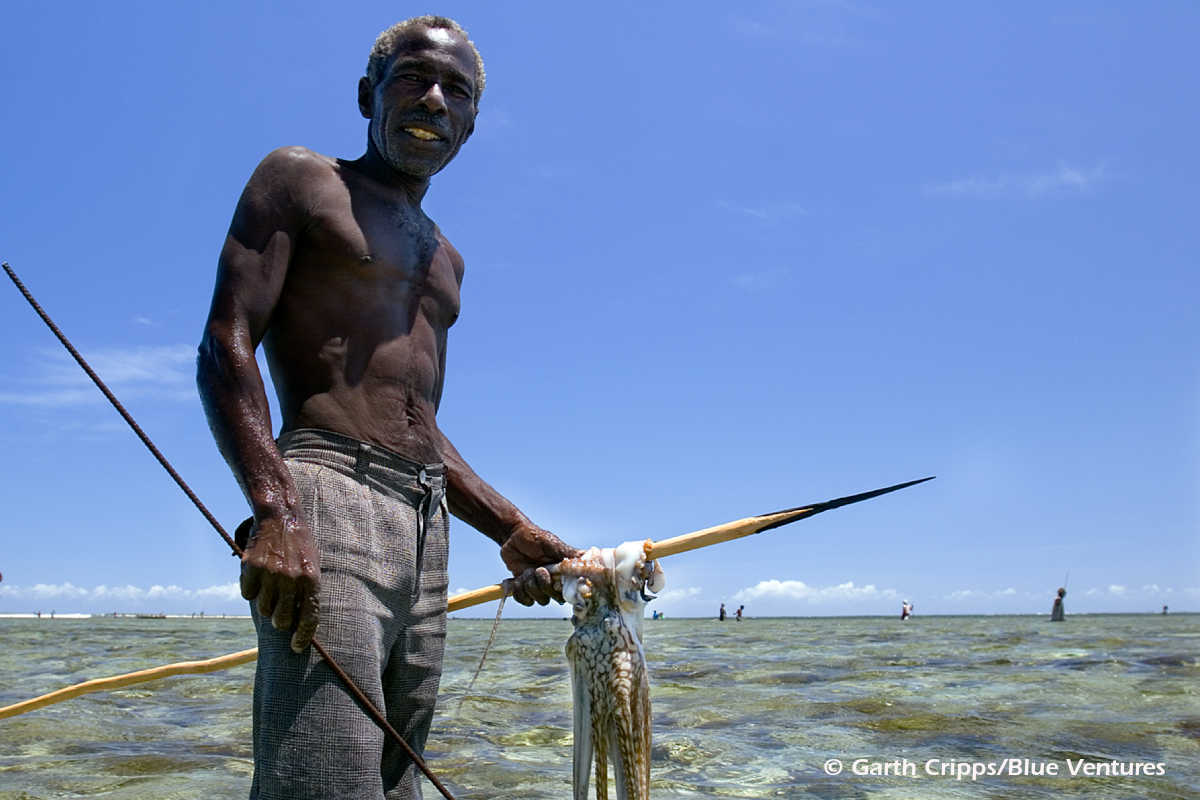Conserving fish stocks
Overfishing by local and industrial fisheries threatens the livelihood of Zanzibar’s lcoastal communities. Climate change, population growth and the tourism industry are increasing the pressure on the scarce resources in the sea.
Most fishermen depend on lagoons for their catches, as they do not have boats suitable for the open sea. Faced with decreasing catch rates, some are resorting to illegal fishing practices such as dynamite fishing or nets with small mesh sizes, further damaging fish stocks.
Many fishers and their local committees are interested in methods that enable sustainable fishing. Through our activities with the British organisation blueventures.org, we demonstrate that the sustainable use of marine resources is economically more successful than overexploitation.
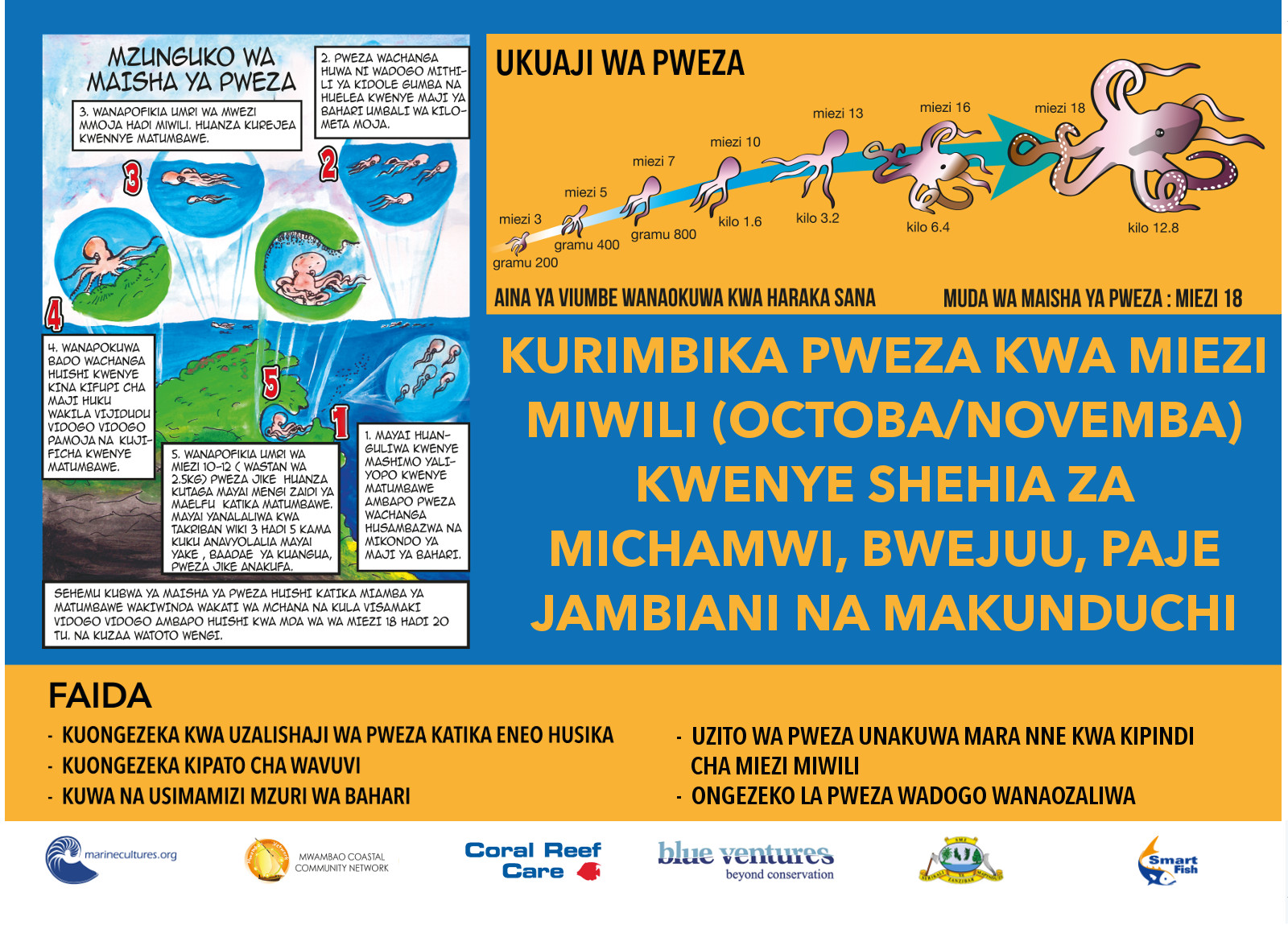
What we do
Closed seasons for octopus
By establishing temporary closed seasons, we protect local octopus populations and support fishermen to sustainably fish octopus. In the eyes of some fishers the closed seasons already showed increased catch rates.
>> Closed seasons for squids
Protected areas for marine animals
We are committed to the establishment of no-fishing zones in the lagoon to allow marine animals to reproduce. Experience with other protected areas shows that this is how stocks recover and yields increase.
>> Protected areas for marine animals
Raising awareness
With our activities and specific awareness programs, we raise the awareness of the local communities and authorities for the importance of sustainable fishing in the Indian Ocean.
>> Raising awareness

"If marine life becomes poor, so will the people who depend on it."
Okala, project manager at marinecultures.org, talks about the changes on the coast of Zanzibar:
"My father was a fisherman, just like his father before him. He took me to the reef where he caught octopus, sea cucumbers and other marine life. So, I learned from him to fish and to catch. But the marine life we had before has changed completely. Life here used to be good because the fishermen could catch enough. Today there are less and less fish in the lagoon. The traps often remain empty.
The environmental changes are a big problem for us on Zanzibar. The high temperatures cause the corals to fade over time; when they die, the fish disappear. The loss of biodiversity has catastrophic effects on coastal economies. If marine life becomes poor, so will the people who depend on it."
>> Read the full story of Okala.
Additional Information
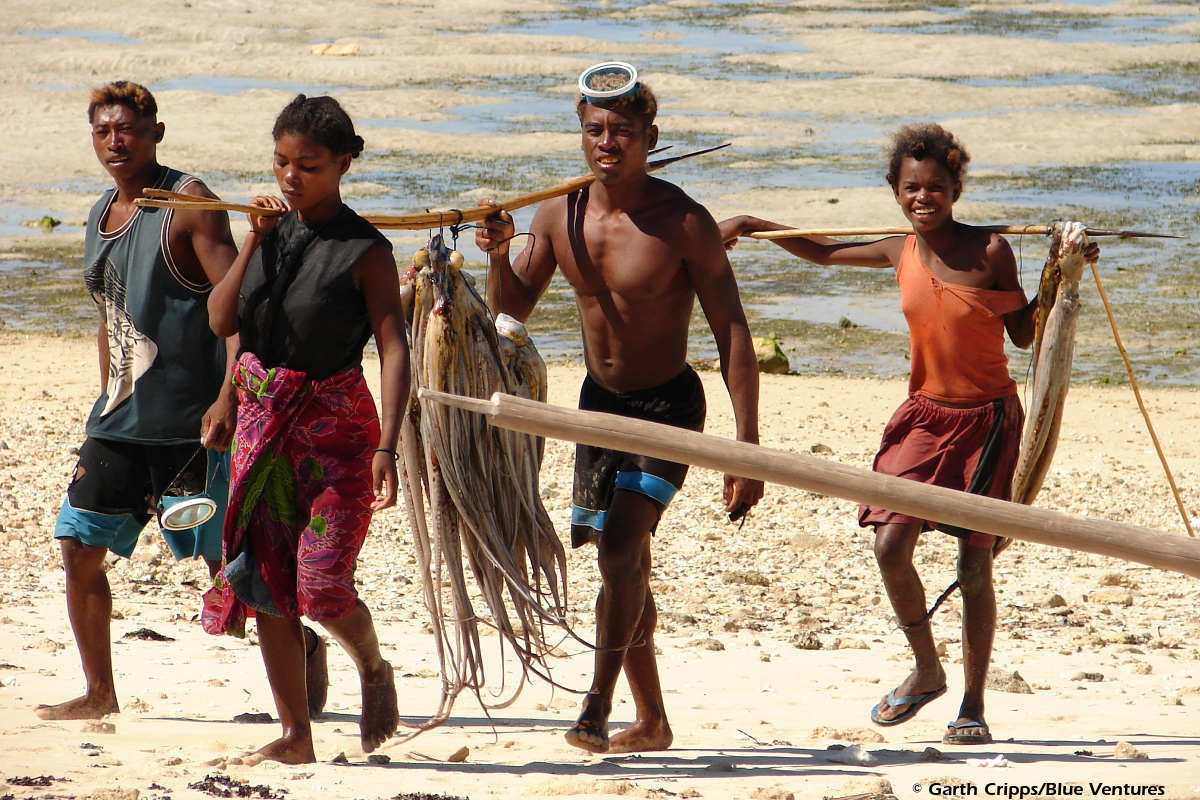
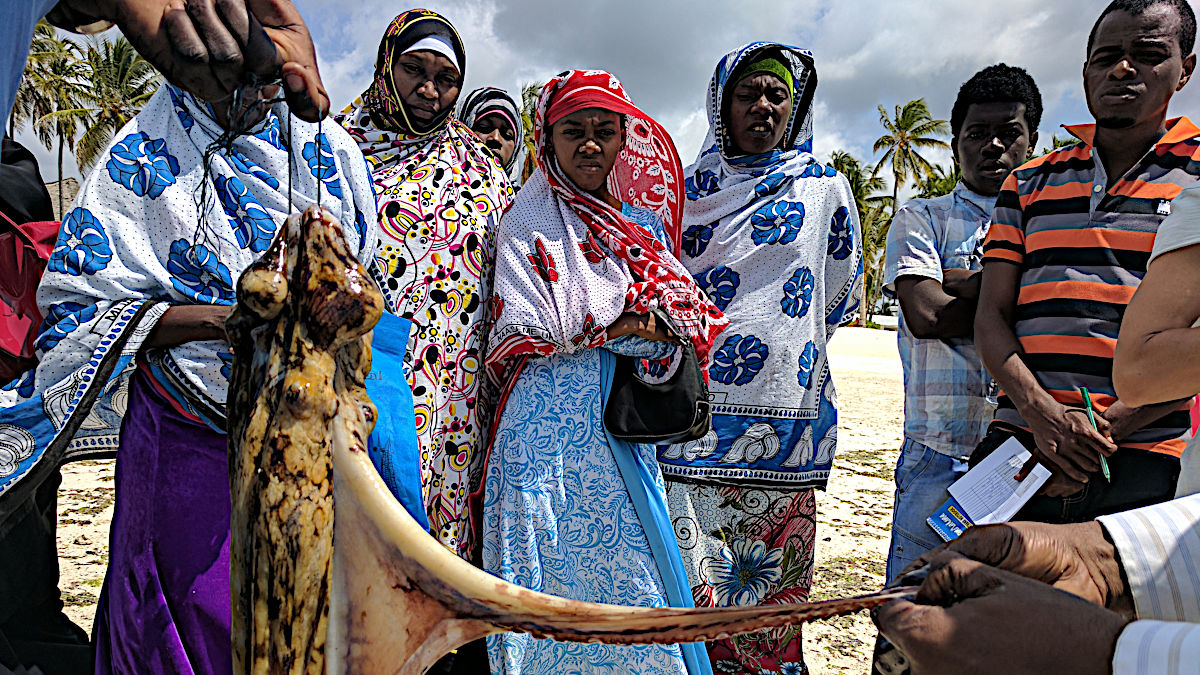
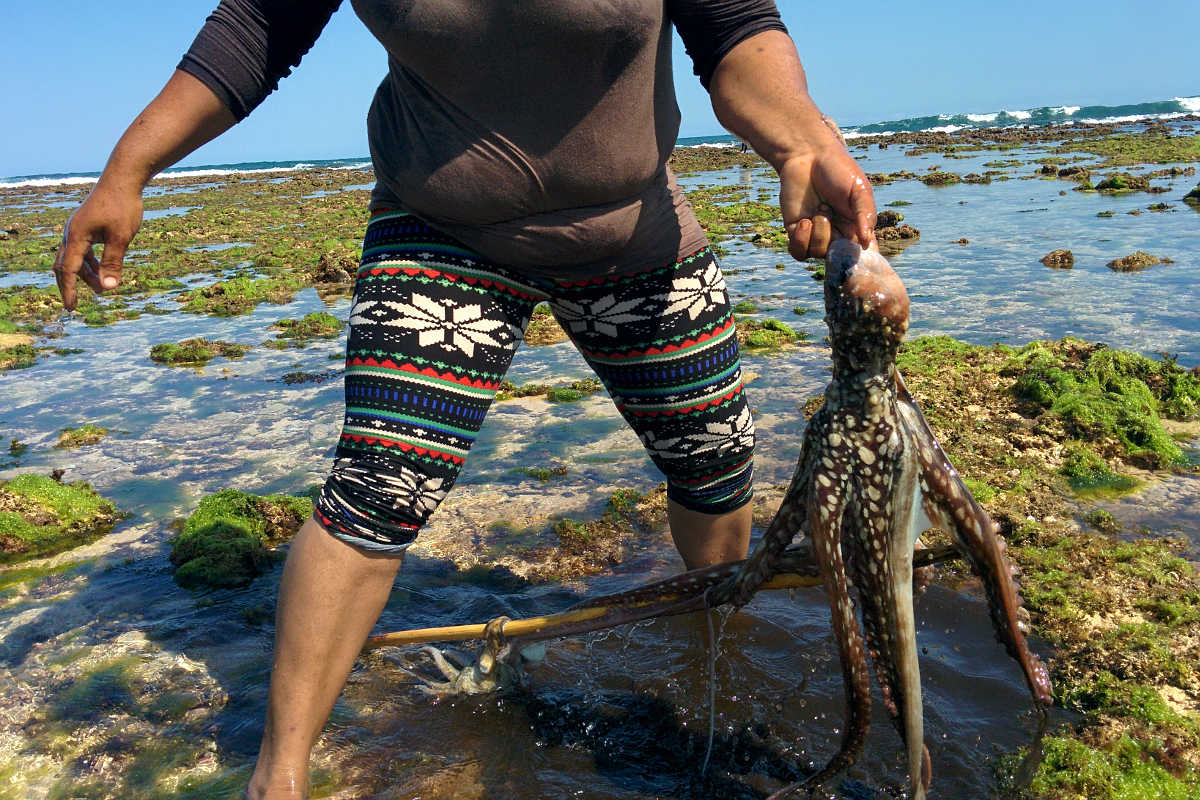
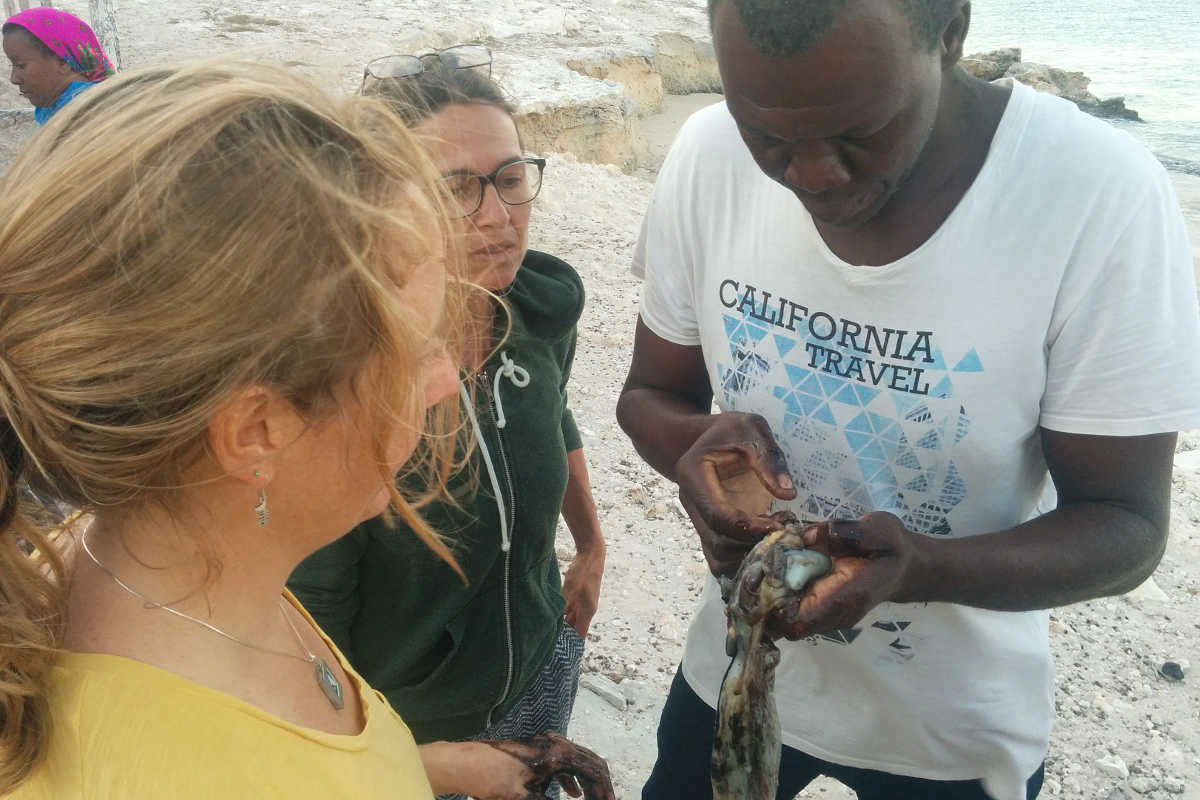
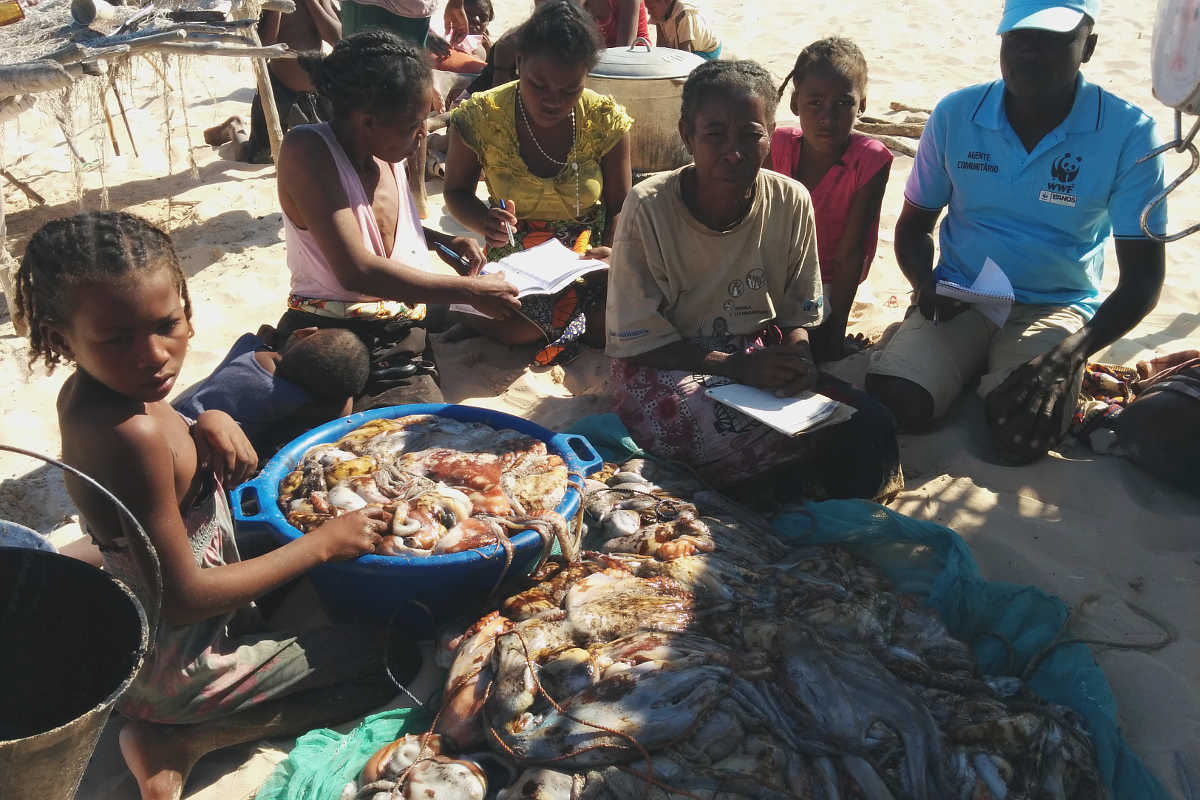
The octopus hunters of Zanzibar
Photographs by Tommy Trenchard and Aurelie Marrier d'Unienville
>> BBC Story
